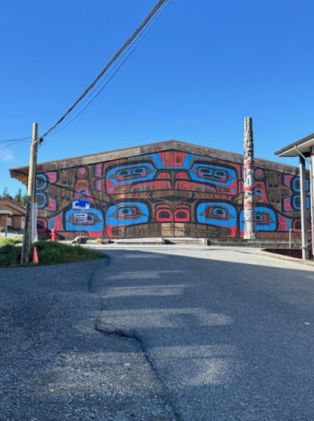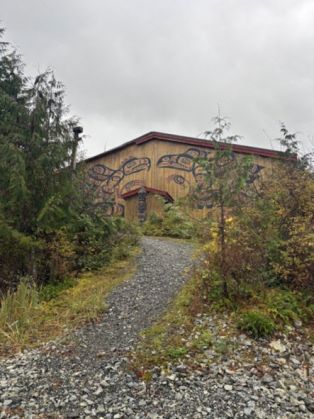An Indigenous law student’s perspective on a circuit court

Provincial Court judges and court teams travel to communities in remote parts of BC to hold court. These sittings are called circuit courts because the court party sometimes travels a circuit, holding court in several communities during a week.
Many of the communities served by circuit courts for decades are Indigenous. Judges are assigned to a circuit court for several years so they can get to know the communities and provide consistent decision making.
Tiara Cunningham is a third year law student at the University of British Columbia’s Peter A. Allard School of Law. She is one of seven law students currently working as judicial interns with the BC Provincial Court. During their term with the Court, each student accompanies a judge and court party on a circuit court.
After her recent circuit court experience, Ms Cunningham wrote:
“I had the incredible opportunity to travel up to Bella Bella and Klemtu with the Court team. As an Indigenous law student, I initially felt reserved about participating in the imposition of the colonial legal system into remote Indigenous communities; however, I quickly learned how welcoming the community is and realized that the relationship has likely been evolving for many years. As we brought our equipment up from the water taxi, members of the community greeted us and referred to the regular members of the court party by name.


One of the highlights of the trip was visiting the Big House in both communities. In Bella Bella, we actually got the opportunity to go inside and view different cultural items, while in Klemtu, we witnessed several whales in the bay nearby the Big House, which was a truly surreal experience. It was so peaceful to be in a remote community and witness such amazing wildlife.
Despite the heavy subject matter and the effects of colonization being so prevalent, it was extremely impactful to experience the legal system in this unique setting as I begin my legal career. Few law students have the opportunity to set up a temporary courtroom in a community centre, take a water taxi to the "courthouse" each day, and be so deeply immersed in the long-term impacts of colonization.
As we were packing up our equipment to leave, a community member who had been in court stopped to speak with Judge Dickey and expressed gratitude for the judge’s work. It was a truly meaningful way to end the trip.
In addition to the field experience, I had the chance to engage closely with members of the court team, gaining a deeper understanding of the crucial roles each individual plays within the judicial process. The court party ate dinner together every night, which allowed for more meaningful conversations about their roles as well as offered a chance to interact in a setting outside of the courtroom.
Overall, this experience has significantly shaped my views on the court system's involvement with Indigenous communities, and is one I will carry with me throughout my career.
This invaluable experience has had a lasting impact on my professional development, and I am grateful for the opportunity.”
Chief Judge Gillespie commented, “The Court’s relationship with the Indigenous communities it serves in circuit courts is an important facet of its reconciliation efforts, and one that has developed over many years.
As Ms. Cunningham’s report shows, travelling with a circuit court has a significant impact on the Court’s interns. The Court is grateful to the Law Foundation of BC for its contribution to their travel expenses.”
More information
Photo credits: Tiara Cunningham and Kim Aminian
